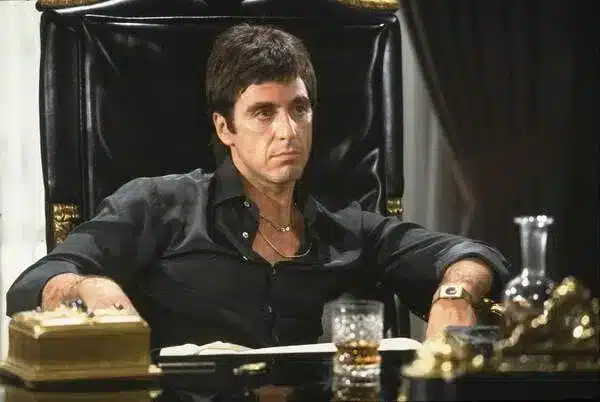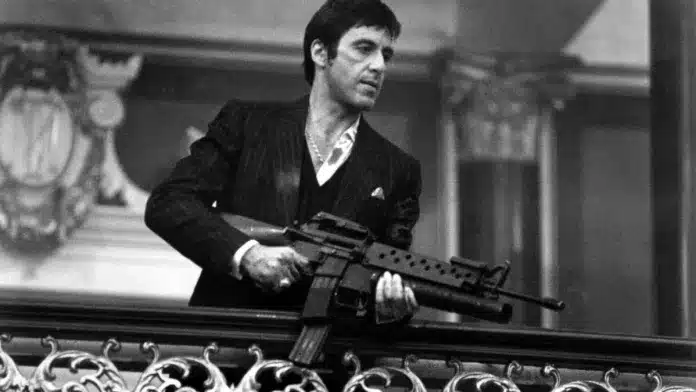
A journey into the heart of Scarface
In the year In the 1980s, a film emerged amid controversy and criticism that represented a before and after in gangster cinema. Scarface, directed by Brian De Palma, would become a cultural icon, but his road to fame was full of obstacles and challenges.
Fighting the censorship of De Palma
The film is not only a raw and revealing story about the world of crime but also faces its own behind-the-scenes drama. Director Brian De Palma has been embroiled in a bitter battle with the Motion Picture Association of America (MPAA) over the film’s classification, which initially received an X rating, mostly for pornography. This decision sparked a heated debate about censorship in cinema and the limits of art.
Tony Montana’s story is one of perseverance and creative passion. The film faced many hurdles from its conception to its release. Controversies with the Cuban community in Miami, disagreements between creators and concerns about the show are some of the challenges the production has to overcome. Through it all, the film stayed true to its vision, which would eventually change the way gangster films were viewed by audiences and critics alike.
Oliver Stone and personal revenge
Oliver Stone’s involvement in the Scarface script added authenticity and rawness to the project. Struggling with drug addiction, Stone channeled his personal experiences into a poignant and poignant narrative. Sidney Lumet’s exit from the production and the ensuing conflict gave way to the arrival of Brian De Palma, who, along with Al Pacino, would take his Tony Montana to new heights of artistic expression.

The film’s production in Miami was less hectic. Opposition from locals like Demetrio Pérez Jr. and pressure from the Cuban community to change the representation tested the project’s credibility. However, the production team’s decision and the Florida governor’s support show the importance of protecting creative freedom in film.
Compare with other works of the genre
Al Pacino’s film is distinguished not only by its raw and realistic approach, but also by its deep social commentary. There is a more visceral and less romantic approach to the crime world compared to other gangster movies like The Godfather or Goodfellas.
The controversy over the violence in Scarface opens a wider debate about the role of art in society. Where is the line between artistic expression and violent glorification? Tony Montana’s film stands at the center of this conversation, challenging viewers to reflect on cinema’s influence and responsibility in the representation of difficult subjects.

The legacy and relevance of Scarface
The film’s impact on popular culture is undeniable. From its beauty to its famous quotes, the film left an indelible mark on the world of entertainment and inspired countless careers in film, music and television.
Tony Montana and his story not only survived the initial controversies but also emerged as a cinematic masterpiece. Beyond violence and outspokenness, the film became a modern-day tragedy warning of the dangers of greed and moral corruption. His influence extends to this day, challenging perceptions of what cinema should and should not be.